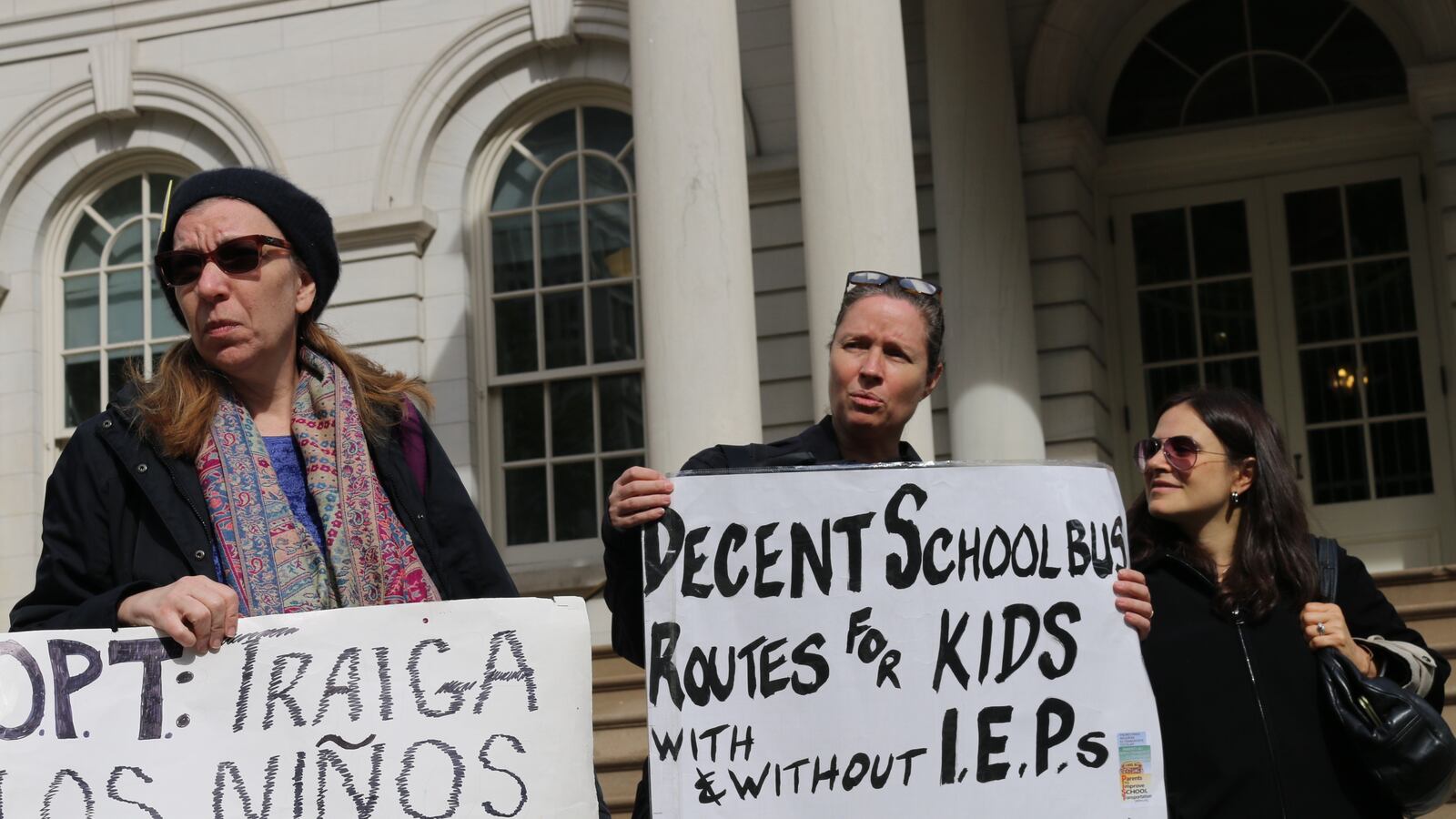After the school year began with a record number of complaints concerning bus delays and treacherously long routes, schools Chancellor Richard Carranza promised that he isn’t done trying to tackle long-standing problems that have plagued the school bus system.
Testifying on Tuesday at a City Council education committee hearing, Carranza said the results of an independent audit already underway will help guide future reforms and that a recent restructuring of the Office of Pupil Transportation will provide better oversight of the department responsible for shuttling 150,000 students across the country’s largest school system.
“Parents depend on us to get their children — their most prized possessions — safely picked up and delivered to school everyday,” Carranza said.
The city is also planning to expand the use of GPS on buses to allow parents to track routes in real time, and will no longer observe a two-week grace period at the beginning of the school year before levying fines on bus companies for being late. That’s according to Kevin Moran, who is leading the Office of Pupil Transportation after the previous director was ousted.
Bus woes are a regular back-to-school debacle. But this year was historically bad, with the “highest level ever” of complaints, according to Speaker Corey Johnson. There were 130,000 complaints in September, Councilman Mark Treyger said.
Parents this year complained their children were never picked up, arrived to school hours late, and sometimes were trapped for upwards of three hours on circuitous routes home — leaving families to agonize over whether their children were safe. The problems where extensively chronicled in the New York Daily News. Many of the affected students have disabilities, and the city is required to provide them with transportation to programs tailored to their needs.
One 4-year-old was let off the bus blocks from her home and got lost before being picked up by a neighbor and brought to a local hospital, councilman Mark Treyger said.
“We cannot continue to allow these things to happen to our children,” Treyger said.
With only six months on the job, Carranza’s response to the problems has provided a window into his leadership style. He swiftly fired Eric Goldstein, former Deputy Chancellor Elizabeth Rose reportedly was pressured to leave, an audit was announced, and additional background checks for drivers are now required. The transportation office is no longer lumped in with departments that oversee school food programs and sports offerings.
“There were a lot of practices that were almost insular in the OPT,” he said. “From a systems perspective, that is not best practice.”
City council members are proposing a slew of new bills to address the long-standing problems. One bill co-sponsored by more than a dozen members would require all buses to use GPS tracking, another would create a bill of rights for riders, and another would require the education department to report average travel times for students. Tucked into a bill sponsored by Councilman Ben Kallos is a call for the city to also consider the use of transportation to encourage school integration.
Kallos, who is also behind the legislation to require location trackers, said the city has already allocated funding for the devices in its budget.
“The city just needs to do it. It’s already paid for,” he said. “It is most important for parents and caretakers… so that no one has to worry where the bus is or their child is.”
Before the council hearing, parents shared busing horror stories. Emily Foley, the mother of a 3-year-old who has Down syndrome, said she never knows how long her child will spend on the bus ride home — a problem that poses a health threat since her child relies on a feeding tube.
Eliyanna Kaiser said her twin boys, who have autism, spent more than three hours traveling just 50 blocks to get to school, turning the excitement of the first day back to classes into a long, worrisome wait to find out whether her sons were safe.
She said that GPS tracking would provide data that could be used to push for change and hold the city accountable.
“It’s really hard to argue with me when I have the GPS data,” she said. “With the data out there it will be a lot easier to prove what the problems are, and it’s harder to duck away from it.”


